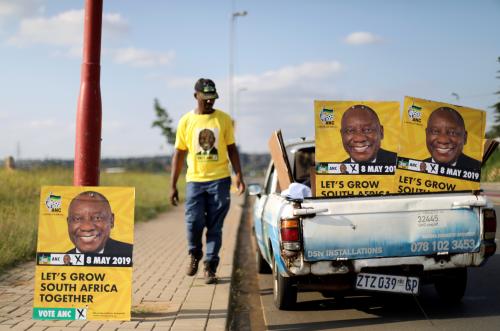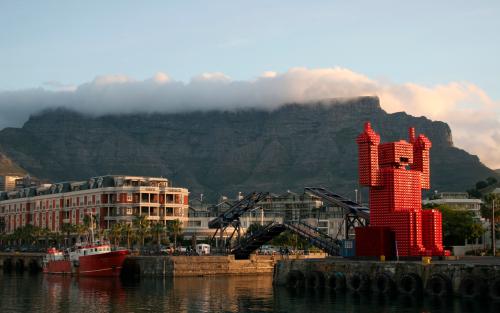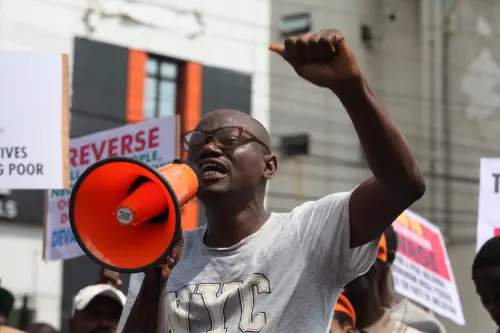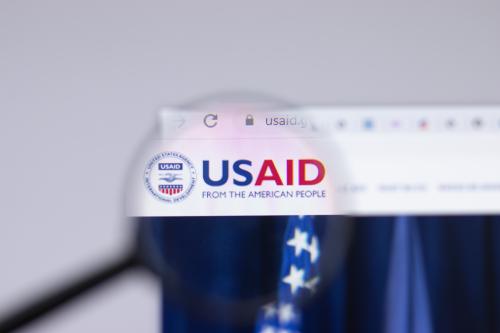African National Congress leads in South African elections
On Wednesday, May 8, South Africans took to the polls to re-elect President Cyril Ramaphosa and his incumbent African National Congress (ANC) party. As of 10 p.m. local time (midnight GMT) on Friday, with over 87 percent of districts having declared their vote counts, the ANC held a commanding lead with around 56 percent of the vote, though this lead was significantly lower than in the 2014 general election when the ANC won 62 percent of the vote. The lead opposition party, the Democratic Alliance, held 23 percent, while the Economic Freedom Fighters were at 10 percent. If this result holds, this outcome will be the ANC’s lowest national result since the end of apartheid.
The ascendance of Ramaphosa to the leadership of the ANC is widely credited with keeping the party afloat given the scandal-ridden tenure of his predecessor, Jacob Zuma. Despite this change in leadership, dissatisfaction with the lack of job opportunities clouded the election, with only 22 percent of voters stating that they think the country is “heading in the right direction” and 79 percent of South Africans stating that corruption is on the rise. Furthermore, turnout was only 65 percent, down from 73 percent in 2014, and the number of registered young voters was at its lowest level in 20 years.
For more on this topic, see Steven Friedman’s examination of how the results of the election could inform the internal politics of the ANC. For a look at Ramaphosa’s plan to revive his country’s economy, see his viewpoint in this year’s “Foresight Africa.”
Low wages and tax reforms are highlighted in Ethiopia
According to a report released earlier this week by the New York University Stern Center for Business and Human Rights, Ethiopian clothes factory workers are, on average, the industry’s worst paid in the world. The entry-level pay for garment-producing workers at Hawassa Industrial Park is $26 a month, significantly below the average Ethiopian per capita monthly income of $65. In comparison, garment workers in Kenya, where GDP per capita is about twice that of Ethiopia, earn $207 a month.
According to the authors of the report, “the government’s eagerness to attract foreign investment led it to promote the lowest base wage in any garment-producing country.” Although Ethiopia’s policy of creating manufacturing centers has led to the creation of tens of thousands of jobs in the garment and other industries, low pay levels have contributed to low productivity and high attrition rates. To address these issues, the report recommends that the government set a minimum wage and develop a long-term economic plan to strengthen the garment industry.
In other news, Ethiopia has seen recent success with tax reforms. According to research from the African Development Bank, the introduction of electronic cash registers in Ethiopia increased value-added tax collections and payments by about 32 percent. However, the report states that, given the low tax base, there is still significant scope to mobilize domestic resources with additional reforms.
New World Bank president commits to additional funding for Africa
Last Friday, May 3, World Bank President David Malpass announced during a three-country visit to the region that the organization will boost its lending to Africa in the coming years. He noted that the institution “will be making more of its grants [and] more of its loans to Africa as a percentage and also in absolute dollars.” This announcement follows his increased focus on the World Bank’s poverty reduction mission since he began his term as World Bank president on April 9.
The World Bank also announced that it would increase support for Malawi, Mozambique, and Zimbabwe as they recover from Cyclone Idai. Funding is being scaled up to $700 million from the initial commitment of $150 million through the International Development Association’s Crisis Response Window. Mozambique is expected to receive $350 million of the additional $545 million mobilized, with Malawi receiving $120 million, and Zimbabwe, the rest.
In related news, on Thursday, the IMF announced that it had reached a preliminary agreement with the Republic of the Congo on a funding program that is expected to last three years, as the central African country struggles to manage its debt levels. The program agreement follows the country’s renegotiation of some of its debts with China, a major bilateral lender. The government is also in negotiations to restructure its commercial debt. The program’s final approval remains contingent on the government implementing several additional reform measures.
The Brookings Institution is committed to quality, independence, and impact.
We are supported by a diverse array of funders. In line with our values and policies, each Brookings publication represents the sole views of its author(s).






Commentary
Africa in the news: Election results in South Africa, low wages in Ethiopia, and new World Bank funding for Africa
May 11, 2019